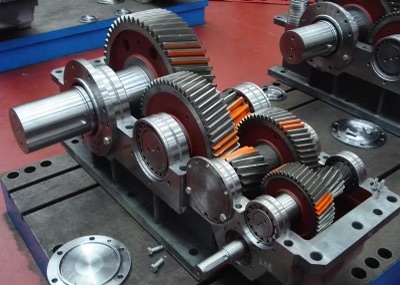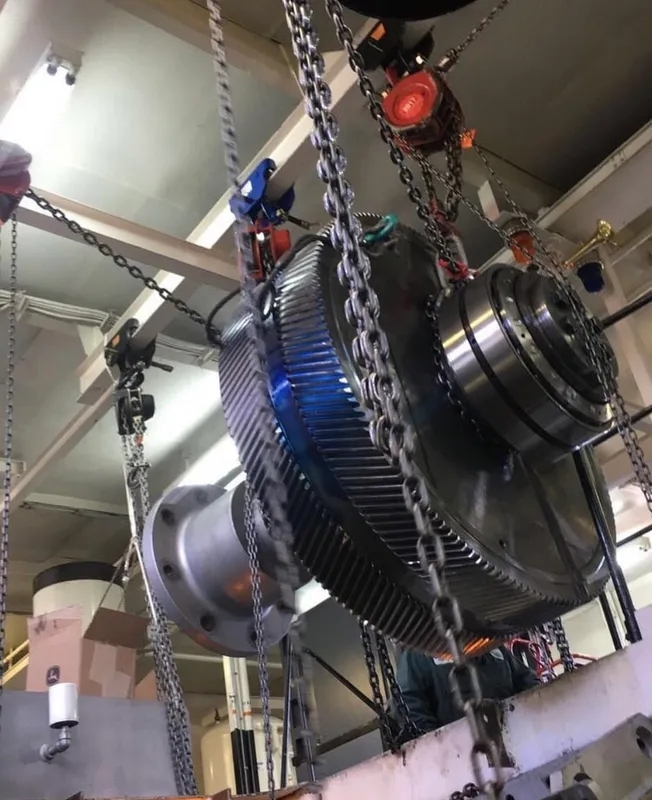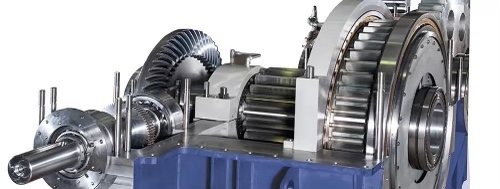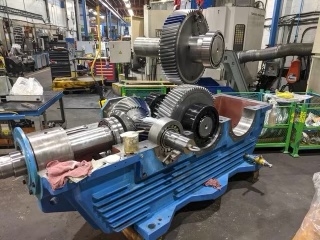

Shearing machine blades should be sharpened regularly to maintain optimal cutting performance. It is recommended to sharpen the blades after every 8-10 hours of use, or whenever they start to show signs of dullness. Regular sharpening not only ensures a clean and precise cut but also prolongs the lifespan of the blades.
The recommended sharpening techniques for different types of shearing machine blades may vary based on the material and design of the blade. For straight blades, a sharpening stone or grinder can be used to maintain a sharp edge. For curved blades, special tools like a honing rod or sharpening jig may be necessary to achieve the desired sharpness.
Tompkins County poised for manufacturing boom with Menlo Micro and Micron investments “Menlo Micro announced a significant investment of over $50 million to establish a fabrication facility in Lansing, near Ithaca, New York, signaling a major boost for the local manufacturing workforce.” Read more Plug Power wins $75 million grant from DOE “The Latham hydrogen … NYS Manufacturing and Tech News 3.11.24 Read More »
Posted by on 2024-03-15
We continue our blog series on the great work of our New York State assets in Advanced Materials across the state. This week, we feature the work of Rensselaer Polytechnic Institute (RPI) in Troy, NY, and their work on next generation building technology with an aim to decarbonize the built environment. This includes working with … Advanced Materials Strengths and Assets in NYS: Focus on Rensselaer Polytechnic Institute Read More »
Posted by on 2024-02-28
Embark on an enlightening exploration of New York’s economic transformation with special guest Alyson Slack from MRB Group, as we uncover the past and present of the state’s manufacturing sector. Together with FuzeHub’s Steve Melito we chart the course from a robust production history to a burgeoning service-oriented economy, all while acknowledging manufacturing’s lasting contributions … Podcast: Building Better Economies Read More »
Posted by on 2024-03-18
New $25M beauty manufacturing and innovation hub for Black- and women-owned businesses coming to Brooklyn Navy Yard “The Brooklyn Navy Yard is set to be home to a new $25 million state-of-the-art manufacturing, incubator, and accelerator facility focused on helping Black- and women-owned health and beauty businesses launch and grow in New York City.” Read … NYS Manufacturing and Tech News 3.4.24 Read More »
Posted by on 2024-03-08
In our third feature in our New York State Assets blog series on Advanced Materials, we focus on the groundbreaking work at the University at Buffalo. Their Department of Materials Design and Innovation focuses on accelerating lab discoveries into practical engineering applications. They are pioneering new approaches in material science education and research, leveraging technologies … Advanced Materials Strengths and Assets in NYS: Focus on University at Buffalo Read More »
Posted by on 2024-03-06
When sharpening shearing machine blades, specific angles or bevels should be considered to ensure optimal cutting performance. The angle at which the blade is sharpened can affect its cutting ability and longevity. It is important to follow the manufacturer's guidelines or consult with a professional to determine the correct angle for sharpening.

Signs that indicate shearing machine blades need to be sharpened include uneven cuts, jagged edges, or increased resistance while cutting. Dull blades can also cause material to snag or tear, leading to a decrease in productivity and quality of work. Regular inspection of the blades can help identify when sharpening is necessary.
Shearing machine blades can be sharpened in-house if the operator has the necessary skills and equipment. However, it is recommended to outsource this task to professionals who specialize in blade sharpening for optimal results. Professional sharpening services can ensure that the blades are sharpened correctly and maintain their original quality.

When sharpening shearing machine blades made of different materials, special considerations should be taken to avoid damaging the blade. For example, blades made of high-carbon steel may require a different sharpening technique than blades made of stainless steel. It is important to use the appropriate tools and techniques to prevent any potential damage to the blade during sharpening.
The consequences of using dull shearing machine blades instead of regularly sharpened ones can be detrimental to both the machine and the quality of work. Dull blades can lead to increased wear and tear on the machine, resulting in costly repairs or replacements. In addition, dull blades can cause a decrease in cutting efficiency, leading to poor quality cuts and potentially unsafe working conditions. Regular sharpening of shearing machine blades is essential to maintain optimal performance and prolong the lifespan of the equipment.

Diagnosing issues with industrial dust collectors involves a thorough inspection of the system, including checking for clogs, leaks, worn-out filters, and malfunctioning components such as fans, motors, and control panels. Technicians may use diagnostic tools like pressure gauges, airflow meters, and particle counters to assess the performance of the dust collector. They will also examine the overall condition of the equipment, looking for signs of corrosion, rust, or structural damage that could affect its efficiency. Additionally, analyzing the dust collected in the system can provide insights into the type of particles being captured and any potential issues with the filtration process. By conducting a comprehensive evaluation of the industrial dust collector, technicians can pinpoint the root cause of any problems and recommend appropriate solutions to optimize its performance.
When it comes to handling repairs for industrial cooling towers, maintenance technicians typically follow a systematic approach to ensure optimal performance and efficiency. This process may involve conducting regular inspections, identifying any issues such as leaks, corrosion, or mechanical failures, and then implementing appropriate repairs or replacements. Common repair tasks may include fixing damaged components, replacing faulty parts, cleaning or replacing filters, adjusting water flow rates, and ensuring proper alignment of fans and motors. Technicians may also perform preventive maintenance to prevent future issues and extend the lifespan of the cooling tower. Overall, a proactive and thorough approach to repairs is essential to keep industrial cooling towers operating smoothly and effectively.
The welding equipment serviced by the company includes MIG welders, TIG welders, stick welders, plasma cutters, welding helmets, welding gloves, welding jackets, welding electrodes, welding rods, welding machines, welding torches, welding consumables, welding accessories, welding gas cylinders, welding regulators, welding cables, welding tips, welding nozzles, welding hoses, welding clamps, welding chipping hammers, welding brushes, welding magnets, welding tables, welding carts, welding safety equipment, welding tools, and welding supplies. The company offers maintenance, repair, and calibration services for a wide range of welding equipment to ensure optimal performance and safety for its customers.
The company services a wide range of packaging machinery brands, including but not limited to Bosch, ProMach, Krones, Multivac, and Ishida. Our team of experienced technicians is well-versed in servicing various types of packaging equipment such as fillers, sealers, labelers, and conveyors. We are committed to providing top-notch maintenance and repair services for all major packaging machinery brands to ensure optimal performance and efficiency for our clients in the packaging industry.
To ensure reliability in equipment repairs, the technician follows a strict protocol that includes thorough diagnostics, using high-quality replacement parts, adhering to manufacturer guidelines, conducting regular maintenance checks, and staying up-to-date on the latest industry standards. The technician also keeps detailed records of all repairs and maintenance performed, conducts rigorous testing before returning the equipment to the customer, and provides a warranty on all work completed. By following these measures, the technician can guarantee the reliability of the equipment repairs and ensure the satisfaction of the customer.